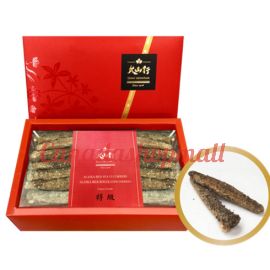We use cookies to make your experience better. To comply with the new e-Privacy directive, we need to ask for your consent to set the cookies. Learn more.
A.Vogel Stinging Nettle Ortie 50ml
$100.00
In stock
SKU
A.Vogel Stinging Nettle Ortie 50ml
A.Vogel Stinging Nettle Ortie 50ml—NPN:80000516
Diuretic aid
A.Vogel Stinging Nettle
Traditionally used in Herbal Medicine as a diuretic aid
helps increase urine volume and flow to irrigate the urinary tract
helps reduce the symptoms of benign prostatic hyperplasia (BPH)
Sugar-, gluten- and lactose-free
Stinging Nettle increases urination, which is useful in cases of chronic cystitis (urinary tract infection). The plant also helps to reduce symptoms of benign prostatic hyperplasia (BPH). Furthermore, it helps to flush out materials that may develop into kidney stones, and can be combined very well with the traditional diuretic plants, dandelion and goldenrod.
A.Vogel Tip
For fluid retention Drink, drink, drink...(you’ve heard this before...) Do not rely on chemical diuretics, which irritate the kidneys and cause potassium to be leached from the body. Use Stinging Nettle from A.Vogel, its mild, natural and it does the job.
Composition
Each 25–drop dose contains:
Medicinal ingredient:
Fresh wild Stinging Nettle herb (Urtica dioica) tincture,
aerial parts, (ratio: 1:1.5) ...0.676 mL,
equivalent to 450 mg herb.
Non-medicinal ingredient:
1 mL of tincture contains 0.5 mL alcohol (ethanol).
1 mL = 37 drops. Dropper included.
Dosage
Adults: Take 25 drops with water, 3 times daily, 15 minutes before meals. Insalivate before swallowing.
Duration: For prolonged use, consult a healthcare practitioner.
Historical overview
Nettles, especially lesser nettle (Urtica urens), have a very bad reputation because of the irritating hairs that covers them. However, when dried, cooked or treated (as in a tincture), this hair loses its stinging properties.
Stinging Nettle is one of the most interesting herbs from a nutritive point of view. Its mineral content reinforces the blood and the whole body. In Europe, it is used, especially in Spring, as a tonic and light depurative (alterative). Stinging Nettle is used for rheumatism and arthritis (1) due to its diuretic effect and eczema (particularly eczema in children and nervous eczema) (6). Thanks to its astringent and vasoconstrictor effects, Stinging Nettle is useful in spontaneous bleeding like nose bleeding or uterine hemorrhage (6). Moreover, its effect on allergic rhinitis (2) is documented. Stinging Nettle is also used to treat cystitis, to prevent and treat kidney stones and to relieve diarrhea.
Actions and pharmacology
Stinging Nettle, rich in nutrients, is often compared to spinach. It is a good source of chlorophyll, minerals (particularly iron and soluble silica) and vitamins. From a pharmacological point of view, Stinging Nettle is most disconcerting. It contains a variety of acids (formic, silicic, threonic, etc.), amines (acetylcholine, choline, serotonine, histamine, etc.), flavonoids, etc. However, none of these molecules explain its beneficial effects. According to a reference, a polysaccharide fraction (not yet chemically identified) would be responsible for the anti-inflammatory effect and a polypeptide fraction or lectine for its immune effect.(5) But, these fractions have not been characterized and no other researchers have confirmed this data. Stinging Nettle promotes uric acid elimination and red blood cell production. Although its active principles are still unknown, Stinging Nettles activity is very well documented.
The German Commission E acknowledges the following uses for Stinging Nettle leaf and whole plant (as opposed to the root): as supportive therapy for rheumatic ailments, as irrigation therapy for inflammatory diseases of the lower urinary tract and prevention and treatment of kidney stones.(1)
Scientific studies
A clinical study on 69 patients demonstrates Stinging Nettles effect on allergic rhinitis: 58% of patients reported relief from rhinitis symptoms and 48% declared that it was more effective than their previous medication.(2)
A randomized double blind study on 27 patients suffering from thumb or index arthritis demonstrated a significant anti-inflammatory effect in one week of a treatment with Stinging Nettle. This study evaluated the effects on pain (with a questionnaire) and on inflammation (both visually and objectively).(3)
In vivo, Stinging Nettle has also demonstrated significant diuretic, natriuretic (increased sodium excretion by kidneys) and hypotensor effects.(4)
Precautions, contraindications and interactions
Do not use if you are taking medication for diabetes and/or blood thinners.
Do not use if you have hypotension or hypertension (low or high blood pressure).
Do not use during pregnancy or nursing.
Discontinue use if you experience nausea, headache, dizziness or gastrointestinal discomfort.
Consult a healthcare practitioner in case of heart and/or kidney disease.
Avoid taking in case of allergy to any of the ingredients in the product.
Do not use if security cap is broken. Keep out of the reach of children.
References
1-The Complete German Commission E Monographs, Therapeutic Guide to Herbal Medicines. Blumenthal M et al 1998. American Botanical Council, 6200 Manor Rd, Austin, Texas, 78723.
2-Mittman P. Randomized, double-blind study of freeze-dried Urtica dioica in the treatment of allergic rhinitis. Planta Med 1990 Feb; 56(1):44-7.
3-Randall C, Randall H, Dobbs F et al. Randomized controlled trial of nettle sting for treatment of base-of-thumb pain. J R Soc Med 2000 Jun;93(6):305-9
4-Tahri A, Yamani S, Legssyer A et al. Acute diuretic, natriuretic and hypotensive effects of a continuous perfusion of aqueous extract of Urtica dioica in the rat. J Ethnopharmacol 2000 Nov;73(1-2):95-100
5-Wagner H, Willer F, Kreher B. Biologically active compounds from the aqueous extract of Urtica dioica. Planta Med 1989 Oct;55(5):452-4
6-British Herbal Pharmacopoeia, British Herbal medicine association, U.K., 1983
Write Your Own Review























